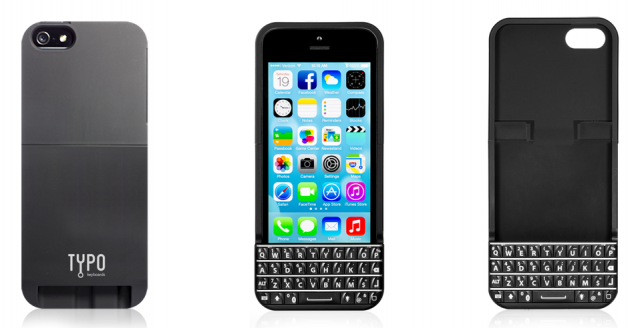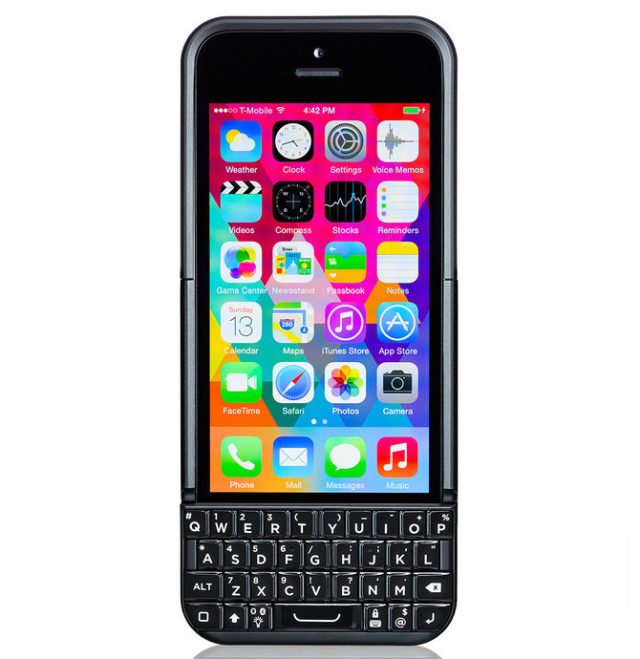
In a court order on Thursday, a Northern California District Court judge ruled that BlackBerry can pursue a contempt of court charge against Typo, a company co-founded by American Idol host Ryan Seacrest and CEO Laurence Hallier, which sells a small physical keyboard that attaches to an iPhone.
BlackBerry initially sued Typo in January, claiming that Typo's keyboards look almost exactly like its own. Indeed, Seacrest told CNN in an interview that the Typo “came to fruition” because he wanted to put what he liked about the BlackBerry into an iPhone.
In March, the judge agreed with BlackBerry and granted the embattled cell phone and software maker a preliminary injunction that banned Typo from selling its $99 keyboard. But according to the judge's order on Thursday, BlackBerry alleged that Typo has been violating that injunction by providing replacement keyboards under its warranty program, by selling its keyboards to foreign retailers, and by cutting a deal with SMI Investments after the judge ruled in favor of an injunction but before the injunction went into effect. This time the judge again sided with BlackBerry, giving the company permission to gather evidence showing that Typo acted in contempt of court.
“I am very concerned with what appears to be deliberate contempt of the preliminary injunction by Typo,” the judge wrote.
Typo, for its part, asked the court for relief from its preliminary injunction because it had recently introduced a new keyboard, the Typo 2, which it said did not infringe on BlackBerry's patents. Those patents include a "Hand-held electronic device with a keyboard optimized for use with the thumbs," and a "Ramped-key keyboard for a handheld mobile communication device," as well as a design patent for a handheld electronic device.

The court denied Typo's request, saying that “Typo’s redesign of its keyboard does not justify relief from the preliminary injunction. The preliminary injunction covers Typo's keyboard as it existed at the time 'and any product that is no more than colorably different,' from that keyboard.” As Ars pointed out earlier this month, the Typo 2 is awfully similar to the original Typo, at least at first glance.
Typo's CEO Laurence Hallier said in a declaration that since the injunction went into effect, the company sold 11,000 Typo cases to foreign retailers in Canada, the Middle East, and Asia. Typo provided to the court invoices for those sales amounting to around $800,000, the order said. Although Typo argued that foreign sales were not bound by a preliminary injunction in the United States, the judge ruled that “The fact that the enjoined keyboards were supposedly 'delivered entirely outside of the United States' does not mean that the sale or offer for sale did not occur in the United States.” In addition, Typo's “invoices indicate that the sale was consummated with the Typo entity located in the United States; payment was directed to Typo at a Wells Fargo in the United States; and some buyers apparently arranged to retrieve the enjoined keyboards directly from Typo.”
reader comments
65